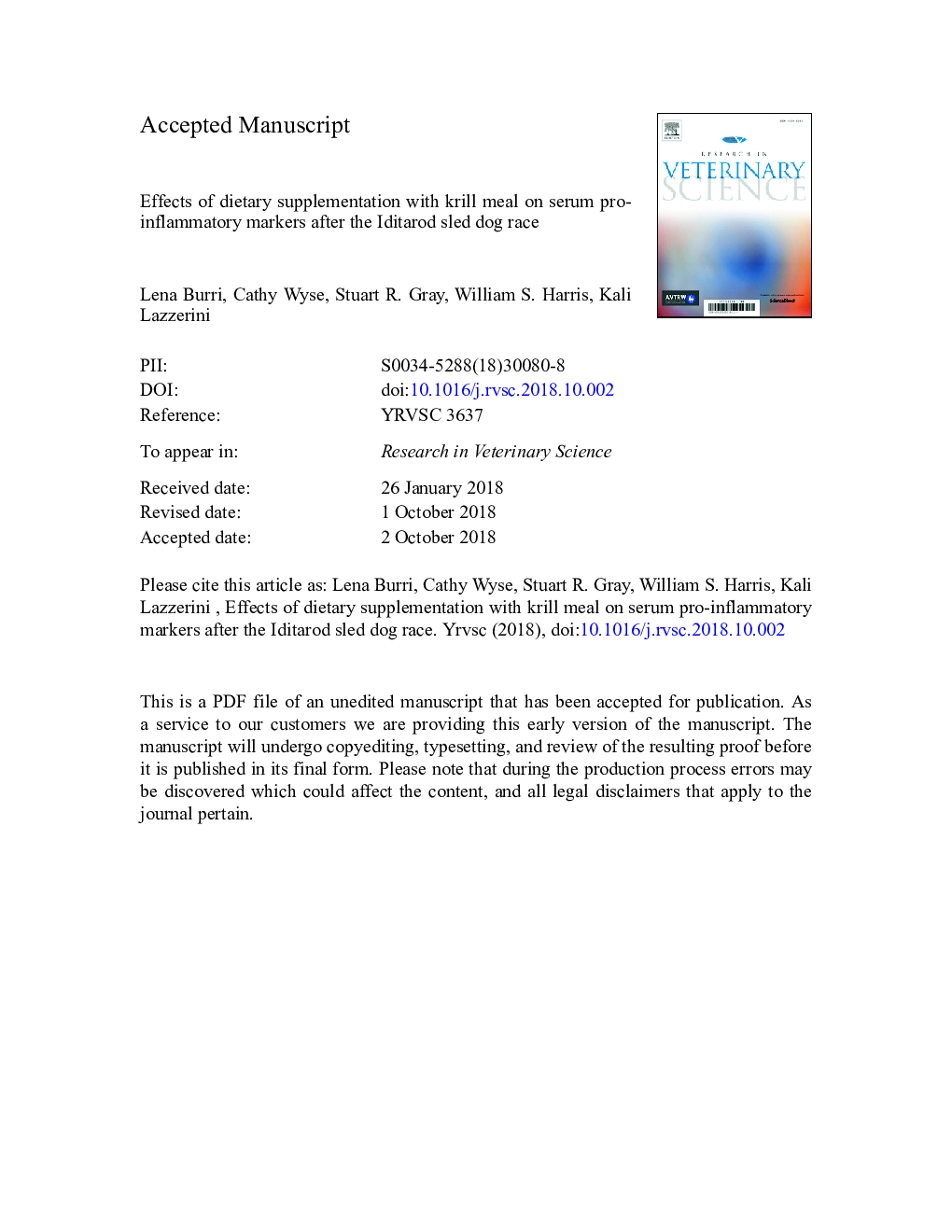| Article ID | Journal | Published Year | Pages | File Type |
|---|---|---|---|---|
| 11010692 | Research in Veterinary Science | 2018 | 18 Pages |
Abstract
The omega-3 index of the krill meal-fed dogs was significantly higher at the beginning of the race (mean 6.2% in the supplemented vs 5.2% in the control group, pâ¯<â¯.001). CRP concentrations increased from 7.05â¯Â±â¯2.27 to 37.04â¯Â±â¯9.16â¯Î¼g/ml in the control and from 4.26â¯Â±â¯0.69 to 16.56â¯Â±â¯3.03â¯Î¼g/ml in the treatment group, with a significant difference between the groups (pâ¯<â¯.001). CK activity was increased from 90.75â¯Â±â¯8.15â¯IU/l to 715.90â¯Â±â¯218.9â¯IU/l in the control group and from 99.55â¯Â±â¯12.15 to 515.69â¯Â±â¯98.98 in the supplemented group, but there were no differences between groups (pâ¯=â¯.266). The results showed that krill meal supplementation led to significantly higher omega-3 index, which correlated with lower inflammation and a tendency for reduced muscle damage after this long-distance sled dog competition. However, these results need to be confirmed by more controlled studies, since it was a field study and effects of race speed or other performance-related factors such as fitness and musher skill on the results cannot be excluded.
Keywords
Krill mealEPADPARBCNADPHRed blood cellsn-3 PUFAAprArachidonic acidEicosapentaenoic aciddocosapentaenoic aciddocosahexaenoic acidinflammationOmega-3 polyunsaturated fatty acidARADHADogFeed ingredientnicotinamide adenine dinucleotide phosphateexerciseacute phase responseC-reactive proteinCRPCreatine kinase
Related Topics
Life Sciences
Agricultural and Biological Sciences
Animal Science and Zoology
Authors
Lena Burri, Cathy Wyse, Stuart R. Gray, William S. Harris, Kali Lazzerini,
